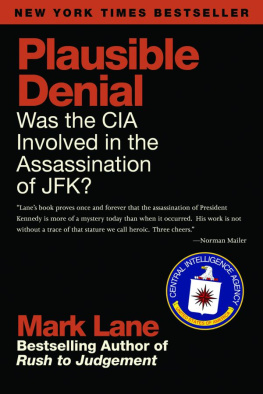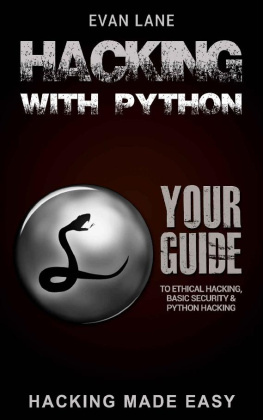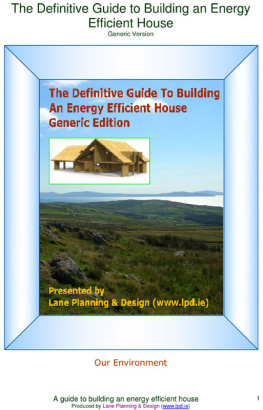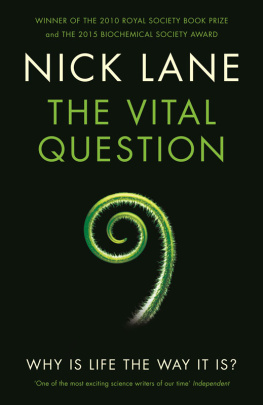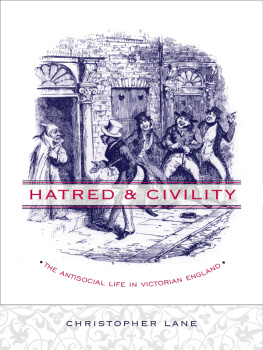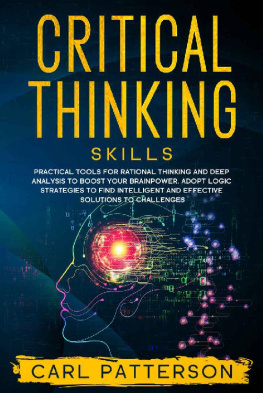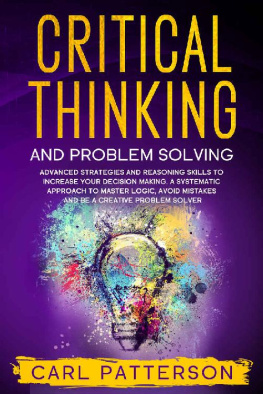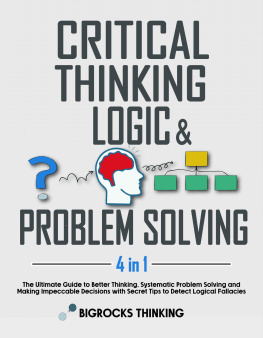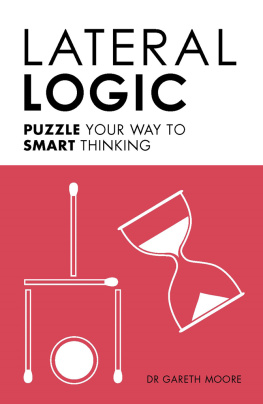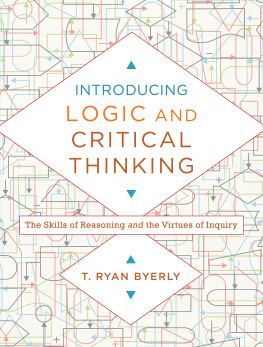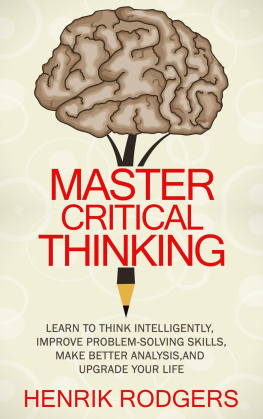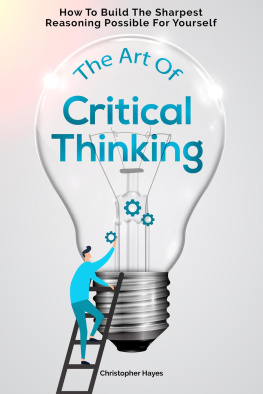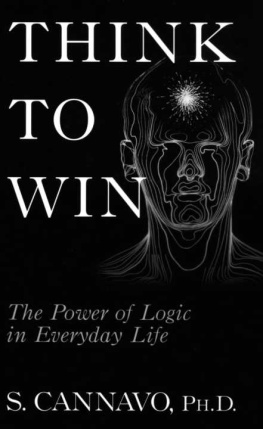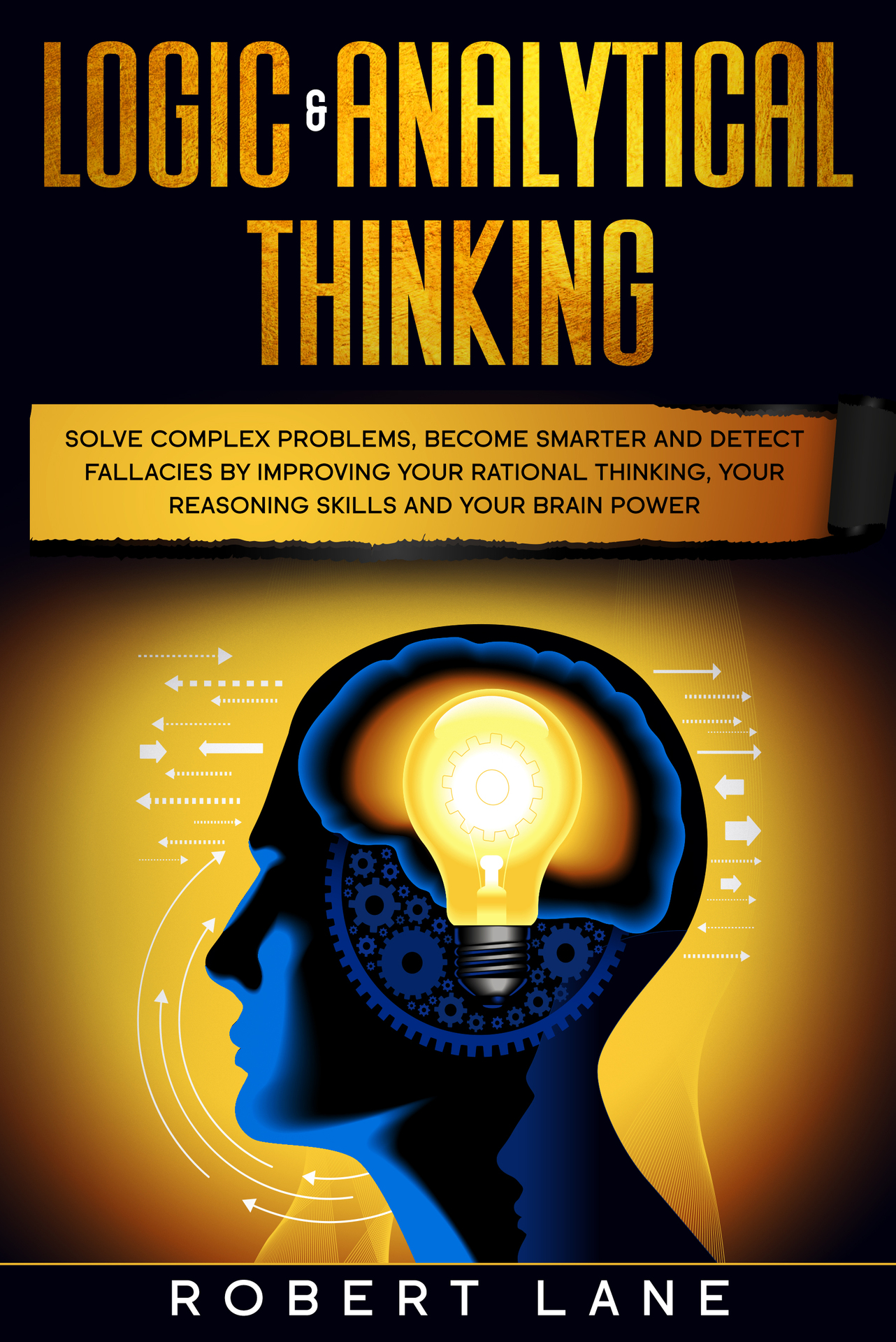Logic
&
Analytical thinking
Solve complex problems, become smarter and detect fallacies by Improving your rational thinking, your reasoning skills and your brain power
2020 by Robert Lane. All rights reserved.
No part of this book may be reproduced in any written, electronic, recording, or photocopying without written permission of the publisher or author. The exception would be in the case of brief quotations embodied in the critical articles or reviews and pages where permission is specifically granted by the publisher or author.
Although every precaution has been taken to verify the accuracy of the information contained herein, the author and publisher assume no responsibility for any errors or omissions. No liability is assumed for damages that may result from the use of information contained within.
Table of Contents
Introduction
T he logic and the analytical thinking are the two major factors that will make your life worthwhile. But unfortunately the majority of the people are unaware of it. They may have some or little knowledge of it but they did not know how their lives can be changed if they bring logic and analytical thinking in to their lives.
There are many successful people out there who say that the reason of their success is logic model and analytical thinking techniques but even then we do not understand the value and the necessity these things in our life.
This book solves that problem now. It is specially written for the people to understand the marvelous world of logic and analytical thinking. In this book many techniques, skills, and models has been introduced for you to not just understand but to apply them in to you regular life without any difficulty.
We have given through and through knowledge of logic and analytical thinking; we have introduced its value and necessity and its purpose in life. After reading this book there will be no doubt left about the necessity of them.
So, if you want to change your life and bring wisdom to yourself and be a person who know shoe to solve any problem then this book is a must read!
Logic & Analytical thinking
Logic is simply the study of the rules for valid inference.
What Is Logic?
Logic is the science of knowledge. It is a tool of reason.
T he logic simply is the tool of human knowledge or the tool of human understanding of how we come to understand things. More formally it is an art in the science of understanding or reasoning. It is about moving forward in our understanding in a way that is ordered and correct and gives us ease.
For example there is this presidential debate going on TV and most people would not watch them because they do n not understand it and it would be disconcerting in the sense of not being able to track the understanding because it is difficult. But a person with logic, a person with the tool of logic is able to listen to the words, the arguments that are put out there and to sort through the fluff and to get to the movement of reason and so logic freezes up to deal with all of the words that are bombarding us and all of the phrases and the terms and the sentences that are thrown at us daily whether that be in the media or just in conversation with our friends or even when we think about God in those things the logic is our tool; logic is what we use to do. It again is a science because there are certain principles that you do by but also an art because you apply them skillfully as you move through life and in various situations.
The first person who attempted to study logic was Aristotle. He lived about 350 BC, the time of Alexander the Great. He was the teacher of Alexander the Great.
Aristotle notices that there were two kinds of logic. There is what we call formal logic nowadays; it is called symbolic logic as well. Now, for the second one there is not a standard name for the other, so it is called informal logic.
In history the classical or liberal education was composed of the seven liberal arts; three of the arts were grammar, logic, and rhetoric. These arts were used to train the mind and so logic is the middle of those three arts and the grammar has to do with again understanding the facts and being able to comprehend situations. The logic has to do with the relationship between facts argumentation like; how one given a certain matter or material? And how does one connect the detail? So, that the true understanding of the situation becomes clear.
Now, we teach the logic in schools, both the deductive logic, which is a formal logic based on Aristotelian logic and then inductive logic or empirical evidence, which we use in math and science courses to train the students how to understand and comprehend the world around them and the matter that they encounter.
Logic and Argument:
Logic is the science that is used to evaluate an argument. If you want to win arguments and if you do not want to be deceived by bad arguments and if you want to be able to recognize a good argument from a bad argument and if you want to be an expert at it then you are going to need to know what logic is. Well, it is simple to learn. It is quite enjoyable to learn and you are going to love learning about arguments. The science used to evaluate an argument and you will be an expert at evaluating arguments.
Now, what is an argument? Many people may think that an argument is one person yelling at another person. However, this idea is incorrect. It does not matter if some person is yelling at some other person and saying; In my opinion you are just a lazy bum. You do not take out the garbage enough and you do not walk the dog enough. And the other person is replying; Oh yeah, well I would like to warn you to stop yelling at me . That is absolutely not an argument; the person is just giving the other person his or her opinion and the other person is just warning the person to stop. They may be doing this in a loud tone but it does not mean that they are in an argument.
What an argument actually are words that are intended to prove a point and it does not matter how loud you say it or how soft you say it but if you use your words with the intention to prove something then you have given an argument. For instance, if the person says; You do not take out the garbage enough because the garbage piles up. I put a video camera in the kitchen and monitored the trash. How long it goes out average time to take out the garbage is once every 24 hours and the garbage has not been taken out in 48 hours. Therefore you did not take out the garbage enough. Now, the person has put forth an argument because the words that the person gave are intended to prove the point that the other person did not take out the garbage enough. Now, this is an argument. So, an argument are words that are used to prove a point. If somebody is using words to communicate, something with the intention of proving a point that is now an argument.
So, we learned what logic is; it is the science of evaluating arguments or words that are used to prove a point and now let us to go into premise and conclusion.
Premise and Conclusion:
Now, premise is evidence in the argument, evidence to prove the point. So, an argument can be broken down into two pieces; all these words that are used to prove the point can be dissected and taken apart and can be put into two categories that is the categories of the premise and the conclusion so you have all. So, they argue the words in the argument and you can dissect them and separate them into two categories the premises and the conclusion.



